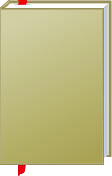

 |

|

The average rating for The study and writing of poetry based on 2 reviews is 3 stars.
Review # 1 was written on 2010-06-06 00:00:00 Ed Furrer Ed FurrerWhat's the word pattern in a sestina? How many iambs are there in each line of a sonnet? What's the difference between a roundeau and a rondelet? This slender reference has all the answers for any poet who's looking to shake it up by experimenting with different forms. There's even a bibliography in the back should you want to track down some examples of acrostics, madrigals, and villanelles. My own copy is yellowed, tattered, well-used, and beloved. |
Review # 2 was written on 2017-04-16 00:00:00 Jeffrey Blair Jeffrey Blair"The Book of Forms" is a decidedly odd handbook of poetic forms. Both it's organization and it's chosen content seem remarkably idiosyncratic. Turco uses his own form of shorthand for diagramming forms that takes a bit of getting used to, and fairly uncommon forms like a medieval Welsh style will often be described at length, with a full example, while far more common forms will be relegated to a sub-example of another form. I honestly don't have much of a problem with either of those. Certainly, there are enough sonnets and rondels in the Western Canon that far more obscure things deserve some highlighting. What concerns me more is the fact that there's a sort of non-stop editorializing that goes beyond the essays that isn't commonly held among poets that is presented as a widely held theory rather than Lewis Turco's own interpretation of the dividing line between "free verse" and "formal verse". There is also the odd selection of examples, which seems to be either examples from distant European history updated into modern English (somewhat), or poetry composed by Turco, his pseudonymous name "Wesli Court" or friends and colleagues of Turco's, including, quite jarringly, a couple of poems composed as odes to the author of the book by friends. There's actually very little canonical poetry used as examples, despite the plethora from history. This perhaps wouldn't be such a problem if so many of those self-same examples didn't exemplify much of the criticism Formalism receives from poetic "modernists", namely that most Formalist poetry lacks much of anything new or interesting to say under all those well maintained iambs and alexandrines. Most of the poetic examples included sounded very nice spoken aloud... and were immediately forgettable. Better to have something that fudges the metre a bit and sticks with you rather than a perfect verse that's bland. There's also very little on forms outside the Western European tradition, other than the usual discussion of Japanese poetry. While perhaps understandable to a certain extent, as English poetry used traditional Western forms far more than forms derived from other cultures, shouldn't a "Book of Forms" at least have a brief mention of longstanding forms of poetry from other literate cultures other than just Japan and a couple of forms from the Arabic tradition that have made it to English? I'm not saying that it has to be given equal coverage, but if the author is going to extensively include multitudes of near-extinct and obscure forms from Gaelic languages, then perhaps a page or so on poetic formalism in, say, Sanskrit or Classical Chinese, might be edifying, and more importantly, offer new vistas of poetic exploration and adaptation. All in all, I wouldn't recommend this as a poet's main reference book. It's just too tendentious, too odd, too cosseted, too *academic*. It delivers analysis but much of it isn't very helpful or encouraging, and you keep wondering, where is the passion? Why write formal poetry at all, if all it is just exercises in showing technical mastery of the language and narrow historical consciousness? Yes, show us how the heart beats in its myriad forms, but give us reason to care that we should know it. Still, for the experienced poet, it's probably worth keeping on the shelf. It's obvious that the book is a work decades in the making of research and practice of poetic forms. One can refer to it to try writing in various forms. The information is all there. It just fails to draw in any reader who is not Lewis Turco and people who are of like mind with him. |
CAN'T FIND WHAT YOU'RE LOOKING FOR? CLICK HERE!!!